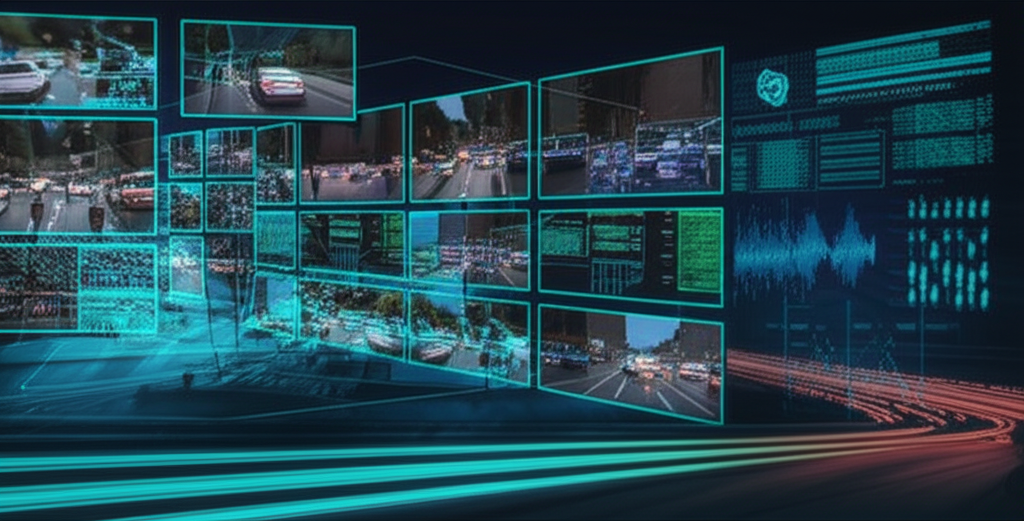Traffic Survey: Complete Professional Guide 2025
Everything you need to know about traffic surveys across the USA, UK, Australia, India, Europe, UAE, Saudi Arabia, and Qatar - from basic concepts to advanced methodologies, costs, and choosing the right professional traffic survey services for your project.

Table of Contents
A traffic survey is the foundation of modern transportation planning and traffic engineering. Whether you're planning a new development, optimizing traffic flow, or conducting an environmental impact assessment, accurate traffic data is essential for making informed decisions.
This comprehensive guide covers everything you need to know about traffic surveys, from basic concepts to advanced methodologies, helping you understand when, why, and how to conduct professional traffic surveys for your specific needs.
What is a Traffic Survey?
A traffic survey is a systematic process of collecting, analyzing, and interpreting traffic data to understand traffic patterns, volumes, speeds, and behaviors at specific locations. These surveys provide essential data for:
For specific applications, you might also need specialized surveys like intersection counts, parking surveys, or pedestrian counts depending on your project requirements.
Primary Objectives
- • Measure traffic volumes and patterns
- • Analyze vehicle speeds and classifications
- • Study pedestrian and cyclist movements
- • Assess intersection performance
- • Evaluate traffic safety conditions
Key Applications
- • Transportation planning
- • Road design and engineering
- • Development impact assessments
- • Traffic signal optimization
- • Environmental impact studies

Professional traffic surveys are the cornerstone of evidence-based transportation planning worldwide. Our international team applies global best practices while adapting to local regulations in the USA, UK, Australia, India, UAE, Saudi Arabia, Qatar, and across Europe.
Dr. Sarah Chen
Global Traffic Engineering Director, DataTerminal
Types of Traffic Surveys
Different types of traffic surveys serve specific purposes and provide different types of data. Understanding these variations helps you choose the right survey type for your project needs.
Different types of traffic surveys serve specific purposes and provide different types of data. For detailed information about specific survey types, see our guides on intersection counts and parking surveys.
Intersection Turning Movement Counts
Measures vehicle movements through intersections including left turns, right turns, and through movements.
- • Signal timing optimization
- • Intersection capacity analysis
- • Safety assessments
12-24 hours typical
95-98%
Traffic Volume Counts
Counts total number of vehicles passing a specific point over a defined time period.
- • Road capacity planning
- • Pavement design
- • Environmental studies
7-14 days typical
90-95%
Speed Studies
Measures vehicle speeds to analyze compliance with speed limits and identify safety issues.
- • Speed limit reviews
- • Safety analysis
- • Enforcement planning
3-7 days typical
95-99%
Vehicle Classification Surveys
Categorizes vehicles by type (cars, trucks, motorcycles) and sometimes by axle configuration.
- • Pavement design
- • Bridge loading
- • Freight planning
7-14 days typical
90-95%
Pedestrian and Cyclist Counts
Measures non-motorized traffic including pedestrians and cyclists at specific locations.
- • Active transport planning
- • Safety improvements
- • Infrastructure design
1-7 days typical
95-98%
Origin-Destination Surveys
Tracks vehicle movements from origin to destination to understand travel patterns.
- • Regional planning
- • Route optimization
- • Network analysis
1-3 days typical
85-90%
Traffic Survey Methods and Technologies
Modern traffic surveys employ various technologies and methodologies, each with specific advantages and applications. The choice of method depends on data requirements, budget, location constraints, and accuracy needs.
Traffic Survey Methods Comparison
| Method | Accuracy | Cost | Duration | Best For | Limitations |
|---|---|---|---|---|---|
| Manual Count | 95-98% | Low | 1-7 days | Short-term studies, specific intersections | Weather dependent, human error |
| Pneumatic Tubes | 90-95% | Medium | 1-30 days | Speed and volume studies | Single lane, weather sensitive |
| Video Analytics | 92-97% | Medium-High | 1-365 days | Complex intersections, multiple data types | Weather and lighting dependent |
| Radar Sensors | 95-99% | High | Permanent | Long-term monitoring, all weather | High initial cost |
| AI-Powered Counts | 97-99% | Very Low | 1-365 days | Comprehensive analysis, multiple metrics | None |
* Accuracy rates based on industry standards and optimal conditions
Traditional Methods
Manual Counting
Human observers count and classify traffic using tally sheets or electronic counters. Highly accurate but labor-intensive.
Pneumatic Tubes
Rubber tubes placed across roadways detect vehicle axles. Cost-effective for volume and speed studies on straight road sections.
Advanced Technologies
AI-Powered Video Analytics
Computer vision and machine learning analyze video feeds to extract multiple data types simultaneously with high accuracy.
Radar and Lidar Sensors
Advanced sensors provide precise speed and classification data in all weather conditions with minimal maintenance.
Benefits and Applications of Traffic Surveys
Our comprehensive traffic analysis solutions help organizations across various industries make data-driven decisions. Whether you need AI-powered analytics or traditional survey methods, we provide tailored solutions for your specific needs.
Planning Benefits
- • Evidence-based decision making
- • Accurate capacity planning
- • Future demand forecasting
- • Resource optimization
- • Risk assessment
Engineering Benefits
- • Design validation
- • Safety improvements
- • Performance monitoring
- • Maintenance planning
- • Compliance verification
Economic Benefits
- • Cost-effective solutions
- • Reduced project risks
- • Optimized investments
- • Regulatory compliance
- • Long-term savings
Industry Applications
Government & Public Sector
- • Road network planning (DOT, DfT, RTA standards)
- • Public transport optimization
- • Traffic signal coordination
- • Safety improvement programs
- • Smart city initiatives (USA, UAE, India)
Private Development
- • Development applications (international standards)
- • Environmental assessments
- • Site access planning
- • Parking requirement studies
- • Cross-border transportation planning
Traffic Survey Costs and Factors
Traffic survey costs vary significantly based on multiple factors. Understanding these factors helps you budget appropriately and choose the most cost-effective approach for your needs.
Cost Factors
Survey Type & Complexity
Simple volume counts cost less than complex intersection studies with multiple data types.
Duration & Timing
Longer studies and peak hour requirements increase costs due to extended data collection periods.
Location & Accessibility
Remote locations, traffic management requirements, and safety considerations affect pricing.
Technology & Equipment
Advanced technologies like AI analytics cost more but provide higher accuracy and more data types.
Typical Cost Ranges
* Prices excluding taxes. Final costs depend on specific requirements and local regulations.
Traffic Survey Cost Calculator
Estimated Cost
Excluding taxes
* Estimate based on standard conditions
* Final cost may vary based on specific requirements
* Includes data collection, analysis, and reporting
Choosing the Right Traffic Survey Provider
Selecting the right traffic survey provider is crucial for obtaining accurate, reliable data that meets your project requirements. Here are key factors to consider when evaluating providers.
When evaluating traffic survey providers, consider their experience with vehicle classification, origin-destination surveys, and other specialized services. Learn more about our case studies and expert team.
Essential Qualifications
Professional Certification
Look for providers with relevant engineering certifications and industry memberships.
Proven Experience
Verify experience with similar projects and survey types in your region.
Quality Assurance
Established QA procedures and data validation processes.
Technology Capabilities
Modern equipment and advanced analysis capabilities.
Key Questions to Ask
"What is your experience with similar projects?"
"What quality assurance procedures do you follow?"
"What deliverables and reporting formats do you provide?"
"How do you handle weather delays or equipment failures?"
"What is your typical project timeline and process?"
Why Choose DataTerminal for Your Traffic Survey?
Data Accuracy Rate
Projects Completed
Support Available
Traffic Survey Case Studies
Case Study 1: Major Shopping Center Development (USA)
Challenge
A major retail development in California required comprehensive traffic impact assessment for county approval, including peak hour analysis and future projections.
Solution
14-day multi-location survey using AI-powered video analytics, covering 6 intersections with turning movement counts, speed studies, and pedestrian analysis.
Results
County approval obtained with data-driven traffic management plan. 15% reduction in projected traffic impacts through optimized access design.
Case Study 2: Highway Safety Improvement (UK)
Challenge
High accident rates on a rural highway section in Yorkshire required detailed speed and behavior analysis to identify safety improvement opportunities.
Solution
30-day continuous monitoring using radar sensors and video analytics, measuring speeds, following distances, and overtaking behaviors in various conditions.
Results
Identified key risk factors leading to targeted safety improvements. 40% reduction in accidents following implementation of data-driven solutions.
Case Study 3: Smart City Implementation (UAE)
Challenge
A major city in the UAE needed comprehensive traffic data to implement smart city traffic management systems as part of Vision 2030 initiatives.
Solution
City-wide traffic survey using IoT sensors and AI analytics across 50 key intersections, with real-time data collection and processing.
Results
25% reduction in congestion and 30% improvement in emergency response times through optimized traffic signal coordination.
Future Trends in Traffic Surveys
The traffic survey industry continues to evolve with new technologies and methodologies. Understanding these trends helps you prepare for future needs and opportunities.
Emerging Technologies
AI and Machine Learning
Advanced algorithms providing real-time analysis, predictive modeling, and automated anomaly detection.
IoT and Connected Sensors
Network-connected devices enabling continuous monitoring and real-time data streaming.
Drone-Based Surveys
Aerial platforms for large-area monitoring and hard-to-access locations.
Industry Developments
Real-Time Analytics
Instant data processing and visualization enabling immediate decision-making and adaptive traffic management.
Integrated Platforms
Comprehensive solutions combining multiple data sources and analysis tools in unified platforms.
Sustainability Focus
Emphasis on environmental impact assessment and sustainable transportation planning.
Frequently Asked Questions About Traffic Surveys
Ready to Start Your Traffic Survey Project?
Get professional traffic survey services with guaranteed accuracy and comprehensive reporting across the USA, UK, Australia, India, Europe, UAE, Saudi Arabia, and Qatar.
Related Articles
Complete Guide to Intersection Counts
Everything you need to know about intersection counting methods and applications.
Types of Parking Surveys
Comprehensive guide to parking survey methods and best practices.
Traffic Data Analysis Companies
How to choose the right traffic data analysis company for your project.